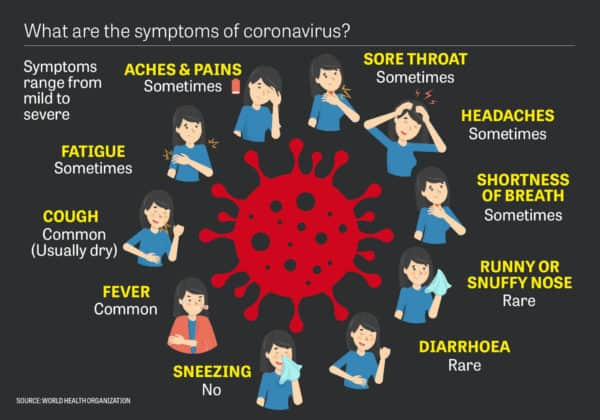Is it safe to take ibuprofen and other anti-inflammatory medication if you have coronavirus? Here’s what you need to know


The number of cases of coronavirus are continuing to rise, and those suffering with symptoms may be taking medication in order to help relieve symptoms.
But France's health minister, Olivier Veran, recently stated that anti-inflammatories, including ibuprofen, “could aggravate the infection.”
“If you have a fever, take paracetamol,” he advised.
Advertisement
Hide AdAdvertisement
Hide Ad

Is this advice correct?
Although this is the information currently being reported in France, Public Health England (PHE) are not advocating the same advice.
PHE said, “There is not currently enough information on ibuprofen use and Covid-19 to advise people to stop using ibuprofen.
“Currently there is no published scientific evidence that ibuprofen increases the risk of catching Covid-19 or makes the illness worse. There is also no conclusive evidence that taking ibuprofen is harmful for other respiratory infections.”
PHE also explains that most people with coronavirus will have a mild illness, and that some people may need to take medicines, such as paracetamol or ibuprofen, in order to help with raised temperature, headache and other pains. The executive agency said people should “always follow the instructions on the label if [they] do take these medicines and do not exceed the stated dose.”
Advertisement
Hide AdAdvertisement
Hide Ad“Patients who have been prescribed NSAIDs for long-term health problems should continue to take them as directed by their healthcare professional,” adds PHE.
Gov.uk explains, “We are aware there has been concern spreading about the use of ibuprofen and other non-steroidal anti-inflammatory medications (NSAIDs) in relation to COVID-19.
“However, there is currently no research into ibuprofen and the new coronavirus. This includes:
– the link between ibuprofen and the likelihood of contracting the virus
Advertisement
Hide AdAdvertisement
Hide Ad– the link between ibuprofen and the worsening of coronavirus symptoms”
However, some medics in the UK are reiterating the warning issued by French authorities.
Professor Ian Jones, a virologist at Reading University, told The Guardian that he would “advise against” taking ibuprofen, explaining: “There’s good scientific evidence for ibuprofen aggravating the condition or prolonging it. That recommendation [from the NHS] needs to be updated.”
Chief scientific adviser, Sir Patrick Vallance, recently told MPs: "The ibuprofen example - it may or may not be right, I don't know, but the sensible thing to do would be to say don't take it at the moment, take something else - paracetamol or something."
Advertisement
Hide AdAdvertisement
Hide AdPrevious NHS advice for those in self-isolation with coronavirus advised taking “everyday painkillers, such as paracetamol and ibuprofen, to help with your symptoms”.
However, the NHS has now updated this to say, “There is currently no strong evidence that ibuprofen can make coronavirus (COVID-19) worse.
“But until we have more information, take paracetamol to treat the symptoms of coronavirus, unless your doctor has told you paracetamol is not suitable for you.
“If you are already taking ibuprofen or another non-steroidal anti-inflammatory (NSAID) on the advice of a doctor, do not stop taking it without checking first.”
Advertisement
Hide AdAdvertisement
Hide AdThe World Health Organisation (WHO) recently issued a statement on Twitter explaining, “WHO is aware of concerns on the use of #ibuprofen for the treatment of fever for people with #COVID19.
"We are consulting with physicians treating the patients & are not aware of reports of any negative effects, beyond the usual ones that limit its use in certain populations. Based on currently available information, WHO does not recommend against the use of of ibuprofen."
These are the symptoms of coronavirus (Photo WHO)
NHS information regarding NSAIDs
Non-steroidal anti-inflammatory drugs (NSAIDs), including ibuprofen, are medicines that are widely used to relieve pain, reduce inflammation, and bring down a high temperature.
The NHS explains that, “They're often used to relieve symptoms of headaches, painful periods, sprains and strains, colds and flu, arthritis, and other causes of long-term pain.
Advertisement
Hide AdAdvertisement
Hide Ad“Although NSAIDs are commonly used, they're not suitable for everyone and can sometimes cause troublesome side effects.”
Who can and can’t take anti-inflammatory medication?
Most people can take NSAIDs, but some people need to be careful about taking them, explains the NHS.
It's a good idea to ask a pharmacist or doctor for advice before taking an NSAID if you:
are over 65 years of ageare pregnant or trying for a babyare breastfeedinghave asthmahave had an allergic reaction to NSAIDs in the pasthave had stomach ulcers in the pasthave any problems with your heart, liver, kidneys, blood pressure, circulation or bowelsare taking other medicinesare looking for medicine for a child under 16 (do not give any medicine that contains aspirin to children under 16)
Advertisement
Hide AdAdvertisement
Hide AdThe NHS said, “NSAIDs might not necessarily need to be avoided in these cases, but they should only be used on the advice of a healthcare professional as there may be a higher risk of side effects.
“If NSAIDs are not suitable, your pharmacist or doctor may suggest alternatives to NSAIDs, such as paracetamol.”
The main types of NSAIDs include:
IbuprofenNaproxenDiclofenacCelecoxibmefenamic acidEtoricoxibIndomethacinhigh-dose aspirin (low-dose aspirin is not normally considered to be an NSAID)
Alternative medication
The NHS add, “As NSAIDs can cause troublesome side effects, alternatives are often recommended first.
Advertisement
Hide AdAdvertisement
Hide AdThe main alternative for pain relief is paracetamol, which is available over the counter and is safe for most people to take.”
Coronavirus: the facts